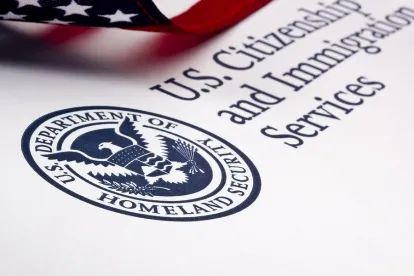Aiming to reform and reduce fraud and abuse in the H-1B and L-1 visa programs, bipartisan bills have been introduced in both Houses of the Congress. Outsourcers are the top users of H-1B visas. These companies are known to flood the H-1B visa lottery and make it more difficult for other companies to obtain the H-1B visas they need to recruit and maintain top talent. Outsourcers have brought foreign nationals to the U.S. on these visas to be trained by the U.S. workers they are destined to replace. In light of this, other perceived abuses, and President Donald Trump’s promises to protect U.S. workers, reform bills are proliferating in Congress.
The H-1B and L-1 Visa Reform Act is a comprehensive bipartisan bill introduced in the U.S. Senate by Senators Chuck Grassley (R-Iowa) and Dick Durbin (D-Ill.) with co-sponsors Bill Nelson (D-Fla.), Richard Blumenthal (D-Conn.), and Sherrod Brown (D-Ohio). This bill is a companion to another bipartisan bill introduced in the House of Representatives on March 2 by Representative Bill Pascrell, Jr. (D-N.J.) with co-sponsors Dave Brat (R-Va.), Ro Khanna (D-Cal.), and Paul Gosar (R-Ariz.). The sponsors of the House bill represent a particularly broad political spectrum from Tea Party members (Brat and Gosar) to the son of Indian immigrants who worked in the Obama Administration (Khanna) – perhaps an indication that momentum is building for this bill that would overhaul the H-1B and L-1 programs.
The “Grassley-Durbin-Pascrell” line of bills focus on outsourcing and the displacement of U.S. workers. The bills would:
-
Require employers to make a good faith effort to recruit U.S. workers by instituting a pre-application, 30-day job posting requirement;
-
Prohibit large companies from hiring H-1B workers if more than 50% of their employees are on H or L visas and prohibit restructuring to avoid the 50%-threshold;
-
Eliminate the random H-1B lottery and replace it with an allocation system that prioritizes those with the highest salaries and those with advanced U.S. STEM degrees;
-
Prohibit replacement of U.S. workers by H-1B or L visa holders for 180 days before and after hire;
-
Require a waiver to outsource H-1B and L-1 workers to other employer sites;
-
Raise H-1B wage requirements and establish L-1 wage requirements;
-
Redefine specialized knowledge to limit L-1B eligibility;
-
Clarify that a “specialty occupation” requires an actual bachelor’s degree – eliminating eligibility based upon equivalency evaluations;
-
Ensure that intercompany transfers do not involve shell corporations;
-
Eliminate the B-1 in lieu of H-1B visa category; and
-
Provide more authority for DHS and DOL to investigate fraud and abuse by sharing information and instituting higher penalties.
The bills also would protect H-1B and L-1 employees by:
-
Limiting H-1B status to three years, unless the beneficiary has an approved I-140 immigrant visa petition (thereby promoting Green Card sponsorship);
-
Requiring employers to provide petition or visa beneficiaries with all documentation filed on their behalf with the DHS and DOL – redacting only sensitive financial or proprietary information; and
-
Requiring USCIS and Consulates to provide beneficiaries with brochures outlining employer’s obligations and employee’s rights under the visa programs.
Changes of this magnitude obviously would affect those who use outsourcing services and require all employers to rethink their hiring practices and immigration strategies.




 />i
/>i

